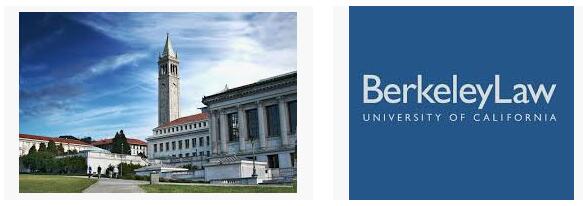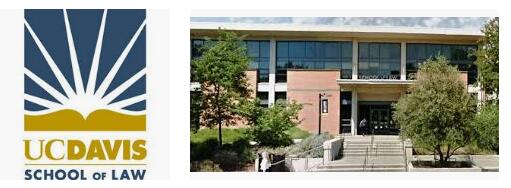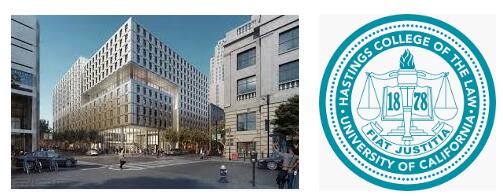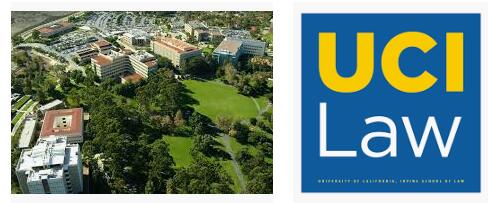Are you pursing a law degree? The TopSchoolsintheUSA.com has generated the latest ranking of best law schools in California that provides Master of Legal Studies (MLS), Master of Dispute Resolution (MDR), Juris Doctor (JD), Master of Laws (LLM), or Doctor of Juridical Science (SJD). You can use the following list to pick a school that fits your needs. These law schools in California are ranked based on the student reviews, alumni surveys, assessment of peer institutions, and official data reported by each law college. In addition, we also provide average LSAT scores, GPA and acceptance rates for each of these law schools in California.
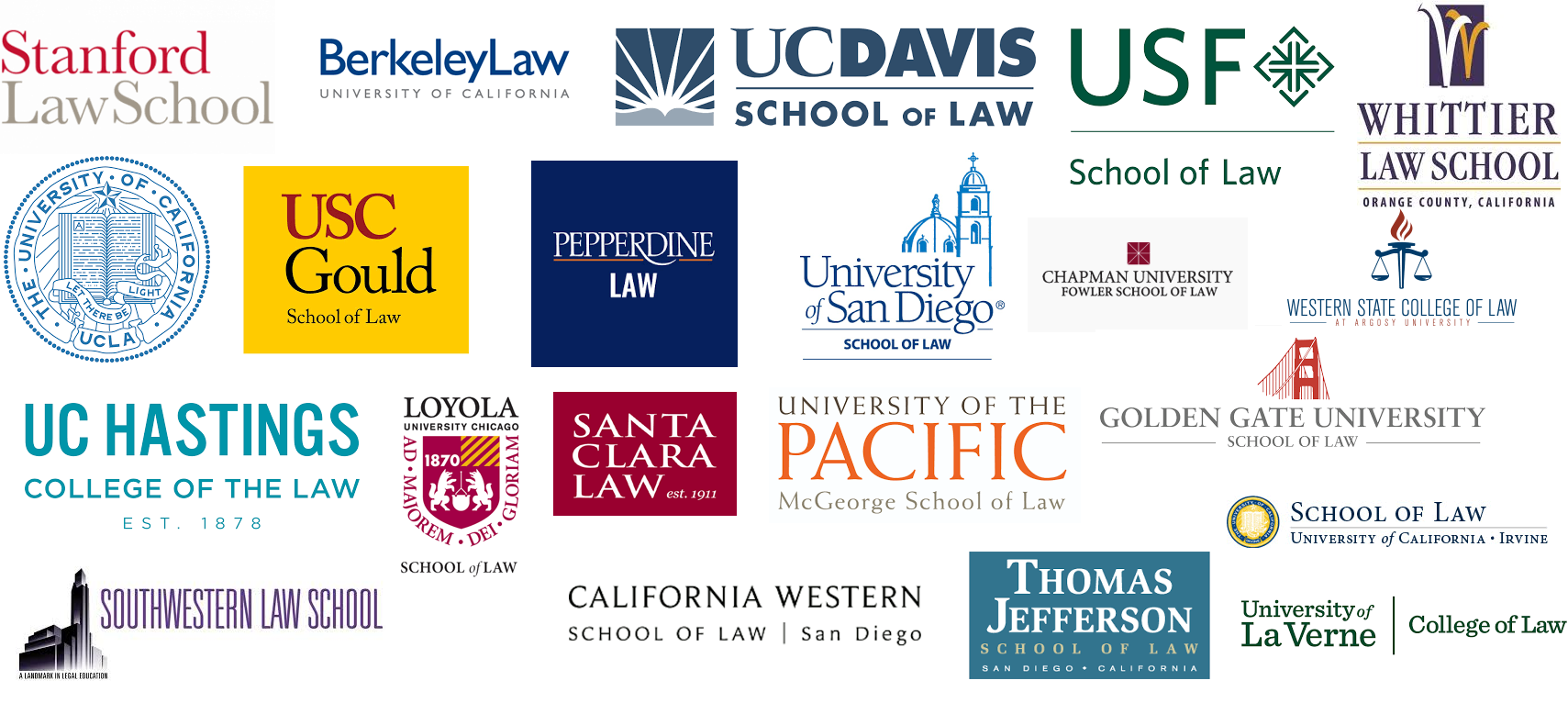
Top ABA-Approved Law Schools in California
| National Ranking | Best Law Programs |
| 2 | Stanford University (Stanford, CA) Acceptance rate: 9.8% LSAT scores (25th-75th percentile): 167-172 GPA (25th-75th percentile): 3.72-3.93 Tuition & Fees: Full-time: $49,179 per year Enrollment (full-time): 571 Graduates known to be employed nine months after graduation: 97.1%
|
| 7 | University of California, Berkeley (Berkeley, CA) Acceptance rate: 12.7% LSAT scores (25th-75th percentile): 164-169 GPA (25th-75th percentile): 3.62-3.88 Tuition & Fees: In-state, full-time: $50,163 per year, Out-of-state, full-time: $54,370 per year Enrollment (full-time): 869 Graduates known to be employed nine months after graduation: 93.6%
|
| 15 | University of California, Los Angeles (Los Angeles, CA) Acceptance rate: 20.1% LSAT scores (25th-75th percentile): 164-169 GPA (25th-75th percentile): 3.55-3.88 Tuition & Fees: In-state, full-time: $44,922 per year, Out-of-state, full-time: $54,767 per year Enrollment (full-time): 987 Graduates known to be employed nine months after graduation: 93.1%
|
| 18 | University of Southern California (Gould) (Los Angeles, CA) Acceptance rate: 25.3% LSAT scores (25th-75th percentile): 165-167 GPA (25th-75th percentile): 3.54-3.77 Tuition & Fees: Full-time: $50,591 per year Enrollment (full-time): 648 Graduates known to be employed nine months after graduation: 91.3%
|
| 32 | University of California, Davis (Davis, CA) Acceptance rate: 25.4% LSAT scores (25th-75th percentile): 161-165 GPA (25th-75th percentile): 3.47-3.79 Tuition & Fees: In-state, full-time: $46,485 per year, Out-of-state, full-time: $54,622 per year Enrollment (full-time): 601 Graduates known to be employed nine months after graduation: 92.3%
|
| 44 | University of California (Hastings) (San Francisco, CA) Acceptance rate: 28.9% LSAT scores (25th-75th percentile): 157-165 GPA (25th-75th percentile): 3.38-3.73 Tuition & Fees: In-state, full-time: $40,836 per year, Out-of-state, full-time: $49,336 per year Enrollment (full-time): 1,241 Graduates known to be employed nine months after graduation: 83.1%
|
| 50 | Pepperdine University (Malibu, CA) Acceptance rate: 33.8% LSAT scores (25th-75th percentile): 158-165 GPA (25th-75th percentile): 3.33-3.78 Tuition & Fees: Full-time: $42,840 per year Enrollment (full-time): 629 Graduates known to be employed nine months after graduation: 90.2%
|
| 53 | Loyola Marymount University (Los Angeles, CA) Acceptance rate: 33.2% LSAT scores (25th-75th percentile): 158-163 GPA (25th-75th percentile): 3.32-3.67 Tuition & Fees: Full-time: $43,060 per year Enrollment (full-time): 1,021 Graduates known to be employed nine months after graduation: 94.1%
|
| 66 | University of San Diego (San Diego, CA) Acceptance rate: 37.9% LSAT scores (25th-75th percentile): 158-162 GPA (25th-75th percentile): 3.24-3.59 Tuition & Fees: Full-time: $42,574 per year Enrollment (full-time): 840 Graduates known to be employed nine months after graduation: 88.2%
|
| 97 | Santa Clara University (Santa Clara, CA) Acceptance rate: 36.3% LSAT scores (25th-75th percentile): 157-161 GPA (25th-75th percentile): 3.02-3.47 Tuition & Fees: Full-time: $1,393 per credit Enrollment (full-time): 738 Graduates known to be employed nine months after graduation: 78.4%
|
| 103 | University of the Pacific (McGeorge) (Sacramento, CA) Acceptance rate: 39.3% LSAT scores (25th-75th percentile): 155-160 GPA (25th-75th percentile): 3.09-3.57 Tuition & Fees: Full-time: $41,320 per year Enrollment (full-time): 653 Graduates known to be employed nine months after graduation: 84.4%
|
| 108 | University of San Francisco (San Francisco, CA) Acceptance rate: 38.0% LSAT scores (25th-75th percentile): 155-159 GPA (25th-75th percentile): 3.08-3.57 Tuition & Fees: Full-time: $40,544 per year Enrollment (full-time): 582 Graduates known to be employed nine months after graduation: 87.2%
|
| 110 | Chapman University (Orange, CA) Acceptance rate: 34.4% LSAT scores (25th-75th percentile): 154-160 GPA (25th-75th percentile): 3.31-3.71 Tuition & Fees: Full-time: $41,460 per year Enrollment (full-time): 506 Graduates known to be employed nine months after graduation: 77.2%
|
| 129 | Southwestern Law School (Los Angeles, CA) Acceptance rate: 35.7% LSAT scores (25th-75th percentile): 152-157 GPA (25th-75th percentile): 3.04-3.48 Tuition & Fees: Full-time: $42,200 per year Enrollment (full-time): 738 Graduates known to be employed nine months after graduation: 87.0%
|
| 150 | California Western School of Law (San Diego, CA) Acceptance rate: 57.2% LSAT scores (25th-75th percentile): 150-156 GPA (25th-75th percentile): 2.93-3.5 Tuition & Fees: Full-time: $42,600 per year Enrollment (full-time): 681 Graduates known to be employed nine months after graduation: 74.6%
|
| 160 | Golden Gate University (San Francisco, CA) Acceptance rate: 59.8% LSAT scores (25th-75th percentile): 150-155 GPA (25th-75th percentile): 2.73-3.41 Tuition & Fees: Full-time: $40,515 per year Enrollment (full-time): 568 Graduates known to be employed nine months after graduation: 67.2%
|
| 181 | Thomas Jefferson School of Law (San Diego, CA) Acceptance rate: 54.8% LSAT scores (25th-75th percentile): 148-153 GPA (25th-75th percentile): 2.76-3.26 Tuition & Fees: Full-time: $41,000 per year Enrollment (full-time): 759 Graduates known to be employed nine months after graduation: 68.3%
|
| 186 | University of La Verne (Ontario, CA) Acceptance rate: 41.7% LSAT scores (25th-75th percentile): 150-155 GPA (25th-75th percentile): 2.74-3.33 Tuition & Fees: N/A Enrollment (full-time): N/A Graduates known to be employed nine months after graduation: 63.2%
|
| 192 | Western State University (Fullerton, CA) Acceptance rate: 56.8% LSAT scores (25th-75th percentile): 149-155 GPA (25th-75th percentile): 2.89-3.33 Tuition & Fees: Full-time: $37,284 per year Enrollment (full-time): 376 Graduates known to be employed nine months after graduation: 71.4%
|
| 193 | Whittier College (Costa Mesa, CA) Acceptance rate: 54.1% LSAT scores (25th-75th percentile): 149-154 GPA (25th-75th percentile): 2.66-3.21 Tuition & Fees: Full-time: $39,090 per year Enrollment (full-time): 564 Graduates known to be employed nine months after graduation: 85.5%
|
| 197 | University of California, Irvine (Irvine, CA) Acceptance rate: 23.8% LSAT scores (25th-75th percentile): 163-167 GPA (25th-75th percentile): 3.25-3.69 Tuition & Fees: N/A Enrollment (full-time): 235 Graduates known to be employed nine months after graduation: N/A
|
All Law Schools in California
California is home to some of the most prestigious and diverse law schools in the country, attracting students from across the nation and the world. These schools offer comprehensive legal education, preparing students for careers in various areas of law, including public interest, corporate law, and academia.
1. Stanford Law School
Overview
Stanford Law School, located in Stanford, California, is consistently ranked as one of the top three law schools in the United States. Known for its innovative approach to legal education, Stanford offers a flexible curriculum that allows students to customize their education according to their interests. With a strong emphasis on interdisciplinary learning, Stanford Law provides students with opportunities to work with departments across Stanford University, giving them a broad, well-rounded legal education.
Degree Programs
Stanford Law School offers a variety of degree programs that cater to different types of legal professionals:
- Juris Doctor (J.D.): The traditional three-year program that prepares students for general legal practice.
- Joint Degree Programs: Stanford Law offers several joint degree programs in collaboration with other Stanford departments, including:
- J.D./MBA (Master of Business Administration)
- J.D./Ph.D. (Doctor of Philosophy in Law and Social Sciences)
- J.D./MPP (Master of Public Policy)
- Master of Laws (LL.M.): A one-year program for practicing attorneys who wish to specialize in areas such as Corporate Governance, Environmental Law, or Intellectual Property.
- Doctor of the Science of Law (J.S.D.): A research-focused doctoral program for those interested in legal academia or high-level legal policy roles.
Admission Requirements
Admission to Stanford Law School is highly competitive, and the admissions committee looks for students with excellent academic records, leadership potential, and a commitment to public service.
- Average LSAT: 171
- Average GPA: 3.92
Other factors considered during the admissions process include:
- Personal Statement: A compelling narrative explaining the applicant’s motivation for pursuing a legal career.
- Letters of Recommendation: Preferably from academic or professional mentors who can attest to the applicant’s abilities.
- Resume: Highlighting academic achievements, work experience, and leadership roles.
Starting Salaries
Stanford Law graduates are highly sought after by top law firms, corporations, and government agencies, resulting in competitive starting salaries.
- Median starting salary (private sector): $190,000
- Median starting salary (public sector): $70,000
2. University of California, Berkeley School of Law (Berkeley Law)
Overview
Berkeley Law, part of the University of California system, is one of the leading public law schools in the country. Located in the San Francisco Bay Area, Berkeley Law is renowned for its commitment to social justice, public interest law, and cutting-edge research. The school offers a diverse curriculum with specializations in areas such as technology law, environmental law, and international law.
Degree Programs
Berkeley Law provides several degree options for students interested in various legal careers:
- Juris Doctor (J.D.): A comprehensive, three-year program preparing students for legal practice.
- LL.M. (Master of Laws): A one-year program for foreign lawyers or U.S. attorneys seeking specialization in a specific field.
- J.S.D. (Doctor of the Science of Law): A research-focused program for students aiming for academic or policy roles.
- Joint Degrees: Berkeley Law offers various joint degree programs in partnership with other UC Berkeley departments, such as:
- J.D./M.B.A. (Master of Business Administration)
- J.D./M.P.H. (Master of Public Health)
- J.D./Ph.D. in Jurisprudence and Social Policy
Admission Requirements
Admission to Berkeley Law is highly competitive, with a focus on academic excellence, diverse backgrounds, and a commitment to social justice.
- Average LSAT: 168
- Average GPA: 3.80
Other considerations include:
- Personal Statement: Explaining the applicant’s goals and interest in Berkeley Law.
- Letters of Recommendation: From professors or professionals who can speak to the applicant’s qualifications.
- Resume: Including professional experience, leadership roles, and community involvement.
Starting Salaries
Berkeley Law graduates frequently secure positions in prestigious law firms, tech companies, and public sector roles.
- Median starting salary (private sector): $190,000
- Median starting salary (public sector): $70,000
3. University of California, Los Angeles School of Law (UCLA Law)
Overview
UCLA Law, located in Los Angeles, is another top-ranked public law school in California. Known for its diverse student body, innovative curriculum, and influential alumni network, UCLA Law provides a dynamic legal education that balances theoretical study with practical training. UCLA Law is especially strong in entertainment law, business law, and public interest law.
Degree Programs
UCLA Law offers a broad range of degree programs that cater to various career goals:
- Juris Doctor (J.D.): A three-year program that prepares students for general legal practice.
- Master of Laws (LL.M.): A one-year program for U.S. and international lawyers seeking to specialize in areas such as Entertainment Law, Business Law, or International Law.
- Doctor of Juridical Science (S.J.D.): A research-based degree for students interested in academic careers.
- Joint Degree Programs: These include:
- J.D./M.B.A. (Master of Business Administration)
- J.D./M.P.P. (Master of Public Policy)
- J.D./M.U.R.P. (Master of Urban and Regional Planning)
Admission Requirements
UCLA Law is selective, seeking students who demonstrate academic excellence, leadership, and a commitment to legal practice.
- Average LSAT: 169
- Average GPA: 3.80
Additional admission factors include:
- Personal Statement: Applicants are encouraged to write about their professional goals, reasons for attending law school, and unique experiences.
- Letters of Recommendation: Usually from professors or employers who can provide insight into the applicant’s potential.
- Resume: Including relevant work experience, volunteer work, and leadership roles.
Starting Salaries
UCLA Law graduates often secure positions in top law firms, entertainment companies, and government agencies.
- Median starting salary (private sector): $190,000
- Median starting salary (public sector): $65,000
4. University of Southern California Gould School of Law (USC Gould)
Overview
The USC Gould School of Law, located in Los Angeles, is one of the oldest law schools in the Western United States. USC Gould is known for its close-knit community, strong alumni network, and interdisciplinary approach to legal education. With a focus on experiential learning, students at USC Gould have numerous opportunities to participate in clinics, externships, and internships in the heart of Southern California.
Degree Programs
USC Gould offers a wide range of degree programs that allow students to tailor their legal education to their career goals:
- Juris Doctor (J.D.): A three-year, full-time program that provides a solid foundation in legal theory and practice.
- Master of Laws (LL.M.): A program designed for foreign lawyers and U.S. attorneys seeking specialized knowledge.
- Master of Studies in Law (M.S.L.): For non-lawyers who want a deeper understanding of the law as it applies to their profession.
- Doctor of Juridical Science (S.J.D.): A doctoral program for students interested in pursuing careers in academia or high-level legal research.
- Dual Degree Programs: USC Gould offers several joint degree programs in partnership with other USC schools:
- J.D./M.B.A. (Master of Business Administration)
- J.D./M.P.P. (Master of Public Policy)
- J.D./M.S.W. (Master of Social Work)
Admission Requirements
Admission to USC Gould is competitive, with the admissions committee considering a combination of academic performance, leadership potential, and personal background.
- Average LSAT: 168
- Average GPA: 3.78
Other admission factors include:
- Personal Statement: Applicants should discuss their motivation for pursuing law and their specific interest in USC Gould.
- Letters of Recommendation: These should come from individuals who can provide insight into the applicant’s academic or professional achievements.
- Resume: Highlighting leadership roles, work experience, and community service.
Starting Salaries
USC Gould graduates enjoy strong job placement rates, particularly in law firms, entertainment, and corporate sectors.
- Median starting salary (private sector): $190,000
- Median starting salary (public sector): $70,000
5. University of California, Davis School of Law (UC Davis Law)
Overview
UC Davis School of Law, commonly referred to as King Hall, is located in Northern California and is known for its small class sizes, supportive community, and commitment to social justice. UC Davis Law offers a world-class education with a strong emphasis on public interest law, immigration law, and environmental law.
Degree Programs
UC Davis Law provides several degree options for aspiring legal professionals:
- Juris Doctor (J.D.): A three-year program that offers a comprehensive legal education.
- Master of Laws (LL.M.): A one-year program for foreign attorneys and U.S. lawyers seeking specialized training.
- Joint Degree Programs: UC Davis offers joint degree programs in collaboration with other UC Davis departments, allowing students to pursue dual degrees such as:
- J.D./M.B.A. (Master of Business Administration)
- J.D./M.P.H. (Master of Public Health)
- J.D./M.S. (Master of Science in Environmental Science)
Admission Requirements
Admission to UC Davis Law is competitive, and the admissions committee seeks students with strong academic credentials, diverse experiences, and a commitment to social justice.
- Average LSAT: 164
- Average GPA: 3.70
In addition to these scores, UC Davis Law considers:
- Personal Statement: Applicants should articulate their passion for law, specific legal interests, and how UC Davis fits into their goals.
- Letters of Recommendation: Ideally from academic or professional sources who can attest to the applicant’s capabilities.
- Resume: Highlighting leadership, community service, work experience, and extracurricular activities.
Starting Salaries
Graduates from UC Davis School of Law typically secure positions in law firms, government, and nonprofit organizations. The starting salaries reflect the school’s emphasis on both public and private sector opportunities.
- Median starting salary (private sector): $125,000
- Median starting salary (public sector): $60,000
6. University of California, Irvine School of Law (UCI Law)
Overview
UC Irvine School of Law, founded in 2009, is one of the youngest law schools in the country but has quickly risen in rankings due to its innovative curriculum, distinguished faculty, and strong commitment to experiential learning. Located in Southern California, UCI Law offers students an intimate learning environment with small class sizes and an emphasis on public service.
Degree Programs
UCI Law offers a variety of programs designed to prepare students for legal practice and leadership roles:
- Juris Doctor (J.D.): A three-year program that focuses on hands-on legal training and a collaborative learning environment.
- Master of Laws (LL.M.): A program designed for both U.S. and international lawyers looking to specialize in areas such as International Business Law, Environmental Law, or Human Rights.
- Joint Degree Programs: UCI Law offers dual degrees, including:
- J.D./M.B.A. (Master of Business Administration)
- J.D./M.A. (Master of Arts in various social sciences)
Admission Requirements
UC Irvine Law is selective in its admissions, seeking students who demonstrate academic excellence, leadership potential, and a commitment to making a difference through the law.
- Average LSAT: 166
- Average GPA: 3.65
The admissions process also weighs:
- Personal Statement: Applicants should discuss their legal interests and their desire to be part of UCI’s collaborative environment.
- Letters of Recommendation: From professors or professionals who know the applicant well.
- Resume: Showing relevant experience in legal work, leadership, and service.
Starting Salaries
UCI Law graduates are known for securing positions in both the private and public sectors, with competitive starting salaries.
- Median starting salary (private sector): $160,000
- Median starting salary (public sector): $65,000
7. Pepperdine University Caruso School of Law
Overview
Pepperdine Caruso School of Law, located in Malibu, is a private law school known for its strong programs in dispute resolution, family law, and religiously informed legal practice. The school integrates Christian values into its curriculum and offers students a unique blend of rigorous academics and ethical considerations.
Degree Programs
Pepperdine Law offers a range of degree options tailored to various legal career paths:
- Juris Doctor (J.D.): A full-time program that includes strong training in ethics and practical skills.
- Master of Laws (LL.M.): Specialized programs are offered in Dispute Resolution, Entertainment, and International Commercial Law.
- Joint Degrees: These include:
- J.D./M.B.A. (Master of Business Administration)
- J.D./M.Div. (Master of Divinity)
Admission Requirements
Pepperdine Law looks for applicants who excel academically and demonstrate integrity and a commitment to service.
- Average LSAT: 160
- Average GPA: 3.60
Additional considerations include:
- Personal Statement: Applicants should discuss their reasons for pursuing law and how Pepperdine fits into their career goals.
- Letters of Recommendation: From individuals who can provide strong references for the applicant’s character and academic performance.
- Resume: Including leadership, work experience, and community service.
Starting Salaries
Pepperdine Law graduates often pursue careers in law firms, entertainment law, and public service.
- Median starting salary (private sector): $120,000
- Median starting salary (public sector): $60,000


